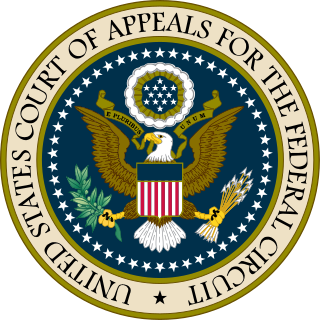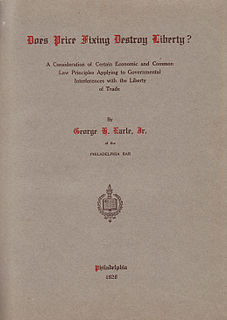
The American Society of Composers, Authors, and Publishers is an American non-profit performance-rights organization (PRO) that protects its members' musical copyrights by monitoring public performances of their music, whether via a broadcast or live performance, and compensating them accordingly.

Broadcast Music, Inc. (BMI) is one of four United States performing rights organizations, along with ASCAP, SESAC and Global Music Rights. It collects license fees on behalf of songwriters, composers, and music publishers and distributes them as royalties to those members whose works have been performed. In FY 2018, BMI collected $1.199 billion in licensing fees and distributed $1.12 billion in royalties. BMI's repertoire includes over 900,000 songwriters and 14 million compositions.
United States Antitrust law is a collection of federal and state government laws that regulates the conduct and organization of business corporations, generally to promote fair competition for the benefit of consumers. The main statutes are the Sherman Act of 1890, the Clayton Act of 1914 and the Federal Trade Commission Act of 1914. These Acts, first, restrict the formation of cartels and prohibit other collusive practices regarded as being in restraint of trade. Second, they restrict the mergers and acquisitions of organizations that could substantially lessen competition. Third, they prohibit the creation of a monopoly and the abuse of monopoly power.
Resale price maintenance (RPM) (US) or retail price maintenance (UK) is the practice whereby a manufacturer and its distributors agree that the distributors will sell the manufacturer's product at certain prices, at or above a price floor or at or below a price ceiling. If a reseller refuses to maintain prices, either openly or covertly, the manufacturer may stop doing business with it.
Music on hold (MOH) is the business practice of playing recorded music to fill the silence that would be heard by telephone callers who have been placed on hold. It is especially common in situations involving customer service.
Music licensing is the licensed use of copyrighted music. Music licensing is intended to ensure that the owners of copyrights on musical works are compensated for certain uses of their work. A purchaser has limited rights to use the work without a separate agreement.
Texaco Inc. v. Dagher, 547 U.S. 1 (2006), was a decision by the Supreme Court of the United States involving the application of U.S. antitrust law to a joint venture between oil companies to market gasoline to gas stations. The Court ruled unanimously that the joint venture's unified price for the two companies' brands of gasoline was not a price-fixing scheme between competitors in violation of the Sherman Antitrust Act. The Court instead considered the joint venture a single entity that made pricing decisions, in which the oil companies participated as cooperative investors.
The Antitrust Paradox is a 1978 book by Robert Bork that criticized the state of United States antitrust law in the 1970s. A second edition, updated to reflect substantial changes in the law, was published in 1993. It is claimed that the work is the most cited book on antitrust. Bork has credited Aaron Director as well as other economists from the University of Chicago as influences.

Mallinckrodt, Inc. v. Medipart, Inc., 976 F.2d 700, is a decision of the United States Court of Appeals for the Federal Circuit, in which the court appeared to overrule or drastically limit many years of U.S. Supreme Court precedent affirming the patent exhaustion doctrine, for example in Bauer & Cie. v. O'Donnell.

Music Reports serves individuals and organizations seeking expertise and solutions in music rights licensing, administration, royalty accounting, and software development and hosting. Music Reports operates the largest registry of worldwide music rights and related business information.
Arizona v. Maricopa County Medical Society, 457 U.S. 332 (1982), was a U.S. Supreme Court case involving antitrust law. A society of doctors in Maricopa County, Arizona, established maximum fees that their members could claim for seeing patients who were covered by certain health insurance plans. Arizona charged them with violations of state antitrust law regarding price fixing. The society tried to rebut the state's charges by claiming that the maximum-fee arrangement was necessary to allow doctors to see these patients, and therefore generated economic benefits.
NCAA v. Board of Regents of the University of Oklahoma, 468 U.S. 85 (1984), was a case in which the Supreme Court of the United States held that the National Collegiate Athletic Association (NCAA) television plan violated the Sherman and Clayton Antitrust Acts. These antitrust laws were designed to prohibit group actions that restrained open competition and trade.
Continental Television v. GTE Sylvania, 433 U.S. 36 (1977), was an antitrust decision of the Supreme Court of the United States. It widened the scope of the "rule of reason" to exclude the jurisdiction of antitrust laws.

United States v. American Society of Composers, Authors and Publishers (ASCAP) et al., No. 09-0539, 2010 WL 3749292, was a United States Court of Appeals case involving copyright liability for third-party vendors that provide online music download services. In particular, the Second Circuit ruled that music downloads do not constitute public performances, upholding the district court's decision and consequently preventing ASCAP from claiming higher royalty fees from Yahoo! and RealNetworks for downloaded music. However, the Second Circuit disagreed with the district court's method of fee assessment and remanded the case for further proceedings. ASCAP appealed the decision and requested a writ of certiorari for judicial review in the Supreme Court.

United States v. Apple Inc., 952 F. Supp. 2d 638, was a US antitrust case in which the Court held that Apple Inc. conspired to raise the price of e-books in violation of the Sherman Act.
American Broadcasting Cos., Inc. v. Aereo, Inc., 573 U.S. ___ (2014), was a United States Supreme Court case. The Court ruled that the service provided by Aereo, allowing subscribers to view live and time-shifted streams of over-the-air television on Internet-connected devices, violated copyright laws.
Kimble v. Marvel Entertainment, LLC, 576 U.S. ___ (2015), is a significant decision of the United States Supreme Court for several reasons. One is that the Court turned back a considerable amount of academic criticism of both the patent misuse doctrine as developed by the Supreme Court and the particular legal principle at issue in the case. Another is that the Court firmly rejected efforts to assimilate the patent misuse doctrine to antitrust law and explained in some detail the different policies at work in the two bodies of law. Finally, the majority and dissenting opinions informatively articulate two opposing views of the proper role of the doctrine of stare decisis in US law.
United States v. Socony-Vacuum Oil Co., 310 U.S. 150 (1940), is a 1940 United States Supreme Court decision widely cited for the proposition that price-fixing is illegal per se. The Socony case was, at least until recently, the most widely cited case on price fixing.










